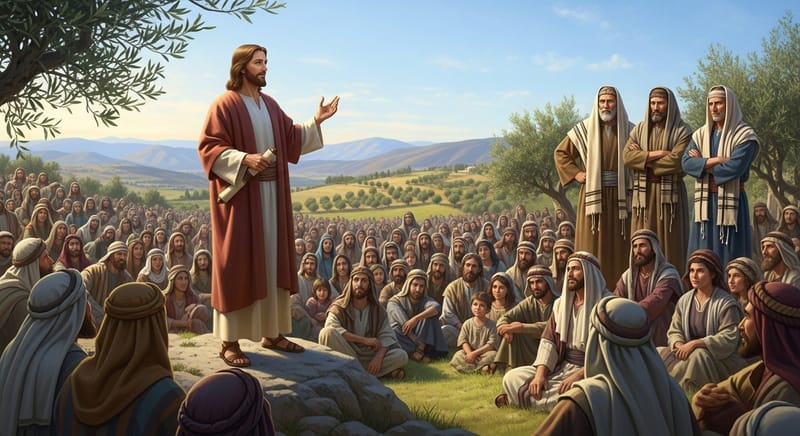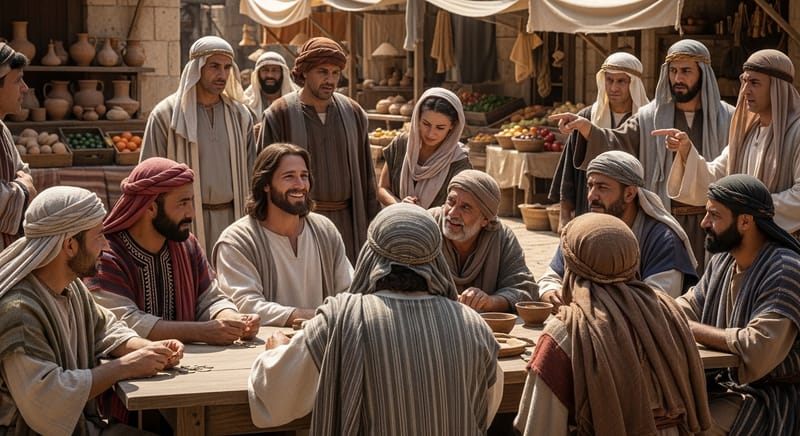DAILY HOMILIES #Jesus
In St. Paul’s words, Advent is a time to “avoid drunkenness, licentiousness (anything goes), quarrelling, jealousy, and indulgence of the flesh.” As Isaiah states, this is a time to allow the mountain of the Lord to be established as the highest of the mountains. In other words, this is a time for us to pay more attention to the things of God, to put God first, and to talk about God, so that those living in darkness (those who think that there is no God) may, through our celebration, begin to recognise and worship God.
Read MoreWhile Nebuchadnezzar’s dream was about the future, we also see Jesus, in our Gospel passage, discussing the future: the destruction of the temple in Jerusalem and the rise of many false prophets claiming they are the Christ. This teaches us one lesson: The only person who knows the future is the one who is already in the future – God. Humans can only guess based on calculations from the past.
Read MoreJesus explains that we will be like the angels in the resurrection – pure spirits who would not need to marry or have children. Jesus quoted from the Scriptures to support his point. He directed them to the passage where Moses encountered the burning bush. The Sadducees were familiar with that passage, but they never fully grasped its implications. He is God, not of the dead but of the Living.
Read MoreIf you are not fired up like Eleazer, the seven brothers and their mother, Matatthaias, or Judas and his brothers, or even like Jesus (who cleansed the temple), then something is seriously wrong. Fight for morality, fight for truth, fight for justice, fight for the Christian faith.
Read MoreIn our Gospel passage, Jesus heals a man who, though physically blind, refused to settle for less. This man was not the only person in Israel with this impairment, but he received his healing because he stood out from the crowd. When Jesus initially ignored him, he refused to be silenced by the crowd; he refused to accept the status quo. He did not keep quiet even when the crowd made him appear small and unimportant. He called out to Jesus as loudly as he could until Jesus noticed him.
Read MoreWhether we face persecution or not, we cannot escape death and God’s judgment. Malachi reminds us that while evildoers will stumble, those who fear God will rise to eternal life. Our Psalmist declares, “God judges with fairness.” Surely, God cannot be bribed or threatened into delivering false judgment, a phenomenon we are used to in this country.
Read MoreNevertheless, prayer does not replace work. Prayer will not put food on your table; instead, it will give you the confidence to leave your house to search for food. You are not afraid to leave your house because you know God will bless the work of your hands. However, when you remain at home hoping that someone will bring the food to your doorstep or that the food will suddenly appear in your kitchen, you are now attempting to do magic. Prayer does not replace work; it blesses the work we do.
Read MoreMany Christians today resemble the remaining nine lepers; God has answered their prayers, but their ingratitude prevents them from being made whole. They often complain about unanswered prayers, not because God has failed to do more than what they request, but because they have yet to notice God’s blessings. Ingratitude — taking the small things of life for granted — is a sickness only you can cure. It is like a man being confined in a prison cell, crying day and night to be fed, while the key to the cell lies right beside him.
Read MoreIn the Sermon on the Mount, Jesus describes us as salt and light. We are supposed to lead the way, not lead others into darkness. Our lives should inspire goodness, not confusion. Do not tell a child one thing while doing the very opposite. If our behaviour encourages others to remain in (or even increase) their sinful lifestyles, we will share in the punishment. Ours might even be worse.
Read MoreJesus teaches us to avoid telling lies and other dishonest practices for the sake of money: “He who is dishonest in a very little is dishonest also in much… And if you have not been faithful with that which is another’s, you will not be entrusted with what is your own.” (Luke 16:10-12) Someone once said, “If you lose money, you lose nothing. If you lose friends, you lose something, but if you lose your character (perhaps, in a bid to make money), you have lost everything.” If people cannot trust you with money, what else is left?
Read MoreToday is the best time to start preparing for death. Please do not wait until it is too late. The steward did not wait until he was dismissed before calling his master’s debtors. Fifth, the best preparation for death is storing treasures in heaven and showing kindness to the needy. The steward made friends by reducing the debts of his master’s debtors. We are to make friends by giving away whatever we have. After all, nothing belongs to us in the first place. We came empty, and we shall return empty.
Read MoreTo kill a rat, you must think like a rat; to win a sinner to repentance, you must come to their level. This is precisely what Jesus did. He risked his reputation (to the extent that he was nicknamed a glutton) to save the lost souls. If we are genuinely interested in winning souls, we will never condemn or write off anyone. No matter how much evil a person has done, they still have something good in them.
Read More










